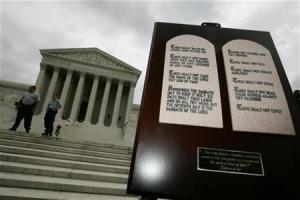Ask Chuck: Setting up an emergency fund
Dear Chuck,
I’ve never had an emergency fund. My parents always helped when I got in a bind. Recently, they told me that since I’m 30 and have an established career, it’s time I handle my own financial affairs. So how does an emergency fund work?
Seeking Financial Independence

Dear Seeking Financial Independence,
It sounds like your parents have been incredibly supportive, so be sure to thank them for their care and financial help through the years; but yes, it is time to wean yourself from this arrangement.
You do need an emergency fund. It is a primary element of a basic financial plan. Having funds set aside and always available for the unexpected expenses that will surely come eliminates a lot of financial stress and the need to rely on credit cards.
Survey says …
Wallet Hub conducted a nationally representative survey. Here are the results:
- 35% of Americans say inflation makes it harder to save for emergencies.
- 44% are not confident they can cover an unexpected expense.
- 30% would use a credit card or loan to cover a major unexpected expense.
- Three in five say inflation has caused them to use emergency savings for day-to-day expenses.
- Two in five prioritize paying off debt over an emergency fund or retirement savings.
- One in three expect someone else to bail them out.
- One in five do not have an emergency savings account.
- More than two in five could not come up with $5,000 in a day to save a loved one’s life.
How much do you need?
An emergency fund is a source of money to draw on during unexpected circumstances. It is basically an insurance fund for sudden setbacks: a layoff, the loss of income, medical bills, car or home repairs, a natural disaster, an unforeseen tax bill, a death in the family, or emergency travel expenses. Giving gifts, non-urgent medical costs, or predictable expenses are not emergencies.
Most experts recommend saving three to six months of your current living expenses, but here are some other scenarios:
- Those with dependents or those who own an older home or drive older vehicles are advised to save more.
- If layoffs are common in your industry or you have a fixed income or are retired, I recommend saving more.
- If you are self-employed or deal with medical issues, save more.
- If you carry high insurance deductibles and/or your income is unstable, save more.
- Single parents without a second source of income should aim to save more.
- Those with few expenses, no dependents, and liquid assets can keep fewer months of living expenses in emergency funds.
A portion of the emergency savings should be “liquid,” or easily accessible, in accounts that won’t be penalized for withdrawal. Basically, don’t confuse your long-term retirement savings plan with an emergency fund.
You need to be able to cover rent, mortgage, utilities, insurance (car, home, health, life), gas, routine maintenance (car and home), HOA fees, health care, groceries, child care, and debt payments. Find the total monthly cost of these items and multiply that by three to calculate a three-month saving goal; multiply by six to determine what is needed to cover six months. This total is for basic survival — luxury items are not included. This is money needed to survive if the unexpected hits.
How to start
Open an account that you absolutely will not touch unless a true emergency arises. Save $1,000 as quickly as possible into an FDIC-insured account with some liquidity, like a money market or high-yield savings account. Set up automatic deposits so you will not spend the money. Deposit financial gifts, credit card rewards, raises, bonuses, or tax refunds when possible. Go through your bank and credit card statements to see where you can cut expenses and divert that money toward an emergency fund until you establish a three-to-six-month cushion. If you must withdraw money, aim to replenish it ASAP.
Set a goal; then challenge yourself with spending fasts, like a no-eating-out month, a no-entertainment-expense month, etc. Find friends to do this with you; some competition may help you build it faster!
Chuck Bentley is CEO of Crown Financial Ministries, a global Christian ministry, founded by the late Larry Burkett. He is the host of a daily radio broadcast, My MoneyLife, featured on more than 1,000 Christian Music and Talk stations in the U.S., and author of his most recent book, Economic Evidence for God?. Be sure to follow Crown on Facebook.





























